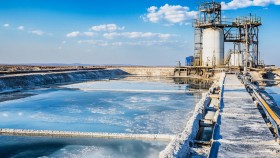Will Steffen: The dilemma of pioneer climate scientists
The name of Will Lee Steffen will stand tall as a pioneer Earth systems and climate change scientist at our critical time when the life support systems of our planet are increasingly threatened. Along with other pioneer climate scientists over the last ~40 years or so, such as Wallace Broecker, James Hansen, Ralph Keeling, Paul Crutzen, Richard Alley, Stefan Rahmstorf, John Schellenberg, William Ruddiman, John Kutzbach, Guy Calendar, Michael Mann, Kevin Anderson, Andrew Weaver, Eric Rignot, Gavin Schmidt, Katrin Meissner, Kevin Trenberth and other, trying to communicate the scientific message of the greatest peril the planet is facing since at least 55 million years ago.
There cannot be a more painful position for scientists than to find themselves compelled to issue severe warnings of the demise of the natural world, civilization, society, family and future generations due to the sharp rise in greenhouse gas concentrations and temperatures originating from emissions from human industry. Yet this is precisely what climate scientists have been called to do, Cassandra-like, based on the physical and observed evidence for the rapid elevation in atmospheric, land and marine temperatures since the end of the 18th century at a rate exceeding geological mass extinction events.
Not all scientists have risen-up to the challenge. A small number have become climate change denial advocates, often supported by oil and gas corporations. Many in companies, government, institutions and in some instances even in universities had to subdue or moderate their warnings. Personal attitudes and politics became evident where, in some instances, scientists regarded as “optimists” were favoured by the authorities while other, labelled as “alarmists”, were penalized for their views. Nowadays the so-called “alarmists” are vindicated as extreme weather events are taking over large parts of the world.
Will Steffen avoided these pitfalls, sticking to the authentic scientific evidence and the manifest consequences of global warming around the world, yet disappointed by the refusal of many in authority to understand the implications of climate science for future generations, as reported in his communications (The Guardian 6/10/2018):
“I think the dominant linear, deterministic framework for assessing climate change is flawed, especially at higher levels of temperature rise. So, yes, model projections using models that don’t include these processes indeed become less useful at higher temperature levels. Or, as my co-author John Schellnhuber says, we are making a big mistake when we think we can “park” the Earth System at any given temperature rise – say 2C – and expect it to stay there … Even at the current level of warming of about 1C above pre-industrial, we may have already crossed a tipping point for one of the feedback processes (Arctic summer sea ice), and we see instabilities in others – permafrost melting, Amazon forest dieback, boreal forest dieback and weakening of land and ocean physiological carbon sinks. And we emphasise that these processes are not linear and often have built-in feedback processes that generate tipping point behaviour. For example, for melting permafrost, the chemical process that decomposes the peat generates heat itself, which leads to further melting and so on.”
Will Steffen wrote to me in our correspondence (27/03/2022):
“For all practical purposes i.e., timescales that humans can relate to, the levels of climate change we are driving towards now will be with us for thousands of years at least. The PETM (Palaeocene-Eocene thermal maximum) might be an appropriate analogue - a rapid spike in CO₂ concentration and temperature followed by the drawdown of CO₂ over 100,000 to 200,000 years. For all practical purposes, that time for recovery is so long (in human time scales) that it could be considered irreversible. Of course, extinctions are irreversible. So when the twin pressures of climate change and direct human degradation are applied to the biosphere, the resulting mass extinction event, that we have already entered, is of course irreversible.”
Will was one of a kind. While he would not let his presentations, expressed in scientifically objective and accurate terms, to be too coloured by optimism or pessimism, the congenial nature of his personality and gentle delivery could not hide the severe implications of his message. Rising above the fray, even his detractors found it difficult to refer to him in terms they commonly use toward other climate scientists. Nowadays in many forums climate scientists are replaced by economists, vested interests, marketing agents, sociologists and politicians, with only a vague idea of the basic laws of physics and the atmosphere.
Young generations, represented by Greta Thunberg, will see Will as one of last defenders of their future.
A/Professor Andrew Y Glikson
Earth and climate scientist
The University of New South Wales.
11 February 2023
This article was first published by Arctic News.










